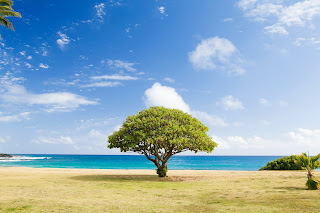What I learned from the habits of my Japanese grandpa
When I look back at the good things that have happened to me, I realized that it was from my grandpa’s teachings.
He lived a very humble life, had no issue in money. I recently read that the Jews, famous for being good in business and finance, one of the big reason for them to do well is to have a nice family fathering with nice food.
It was the same for grandpa. Lives the simplest, the same routine everyday. But he was eager to invest to have a nice family meal once in a while.
Simple Routines that seem boring...
I moved to the U.S. when I was 8 years old, so it was once every few years I get to spend time with grandpa.
Every time I see him, he’ll have the exact same habits. Here are some examples.
- 7am: Wake up and watch the news. (Complain a little about the world while watching)
- Read the newspaper(again complain a little. He was modest he wasn’t happy with a lot of the news)
- Breakfast. Eat grated radish, butter roll bread or rice with stewed eggplant.
He lived 2 bus stops away from the train station, and those who are 60 years old or older get a free pass to take the bus. But he walked as much as possible.
His life generally completes within the nearest train station.
- Topping up his usual groceries.
- He’ll wear a collared shirt, long pants, and a jacket to go everywhere, which was kind of rare for a retired person.
- People dress more casually but he dressed formally.
- He buys cheap sashimi, buys his favorite bestseller soda, Mitsuya cider, grated sugar ice, black sugar, his favorite sake Tateyama, drink cheap beer Nodogoshi Nama when he can afford to buy any beer in the supermarket.
Cut costs low
He had days he would do the laundry or bathe all in his calendar hung on the dining room wall. He seemed to like the Sento or public bath, which is 410JPY(3USD). But he would choose to bathe in the house because it’s cheaper.
He is so used to Japan being poor he chooses not to bathe everyday. A lot of people encouraged him to, but he never could adopt using too much water.
I shower everyday so I didn’t adopt this routine, but the small routines compounds.
While my other family members liked going to fancy resorts or onsen ryokans, my grandpa had no interest. His travels are to see us, or his old friends and relatives back in his hometown.
Good listener, giving, and has a charm
Being helpful
My grandpa was very compassionate. He was helpful to his surroundings and seemed to like people helping others.
One time I helped 2 Japanese girls being asked questions by an American tourist in a matsuri festival in Yokohama. My grandpa was the one that asked me if I might be able to help them, because the 2 girls spoke 0 English.
I quickly solved it, and grandpa gave me a quiet good job then, but my dad later told me grandpa called him how proud he was that I was speaking English so fluently to the American tourist, helping them.
That’s probably why I volunteer guided in Kyoto in English during my studies in university. Well if it makes you that happy grandpa, I’m happy to do it and help more American tourists.
And this volunteer guiding led to tourists tipping me quite a lot, some even wanted to invest in my tuition and a few job offers, which was very surprising to me.
Good Relationships
I think my grandpa was relatively happy when he died. Some shits came along but overall happy.
My grandpa had to go on a surgery 3 times I believe, due to cancer. I would visit him every month, usually with my aunt.
I spent time with grandpa a lot in the hospital, and he looked so weak a lot of times. He told me how painful it was too, but he was willing to fight to live longer.
He was always saying he wants to live longer, which I am happy about, but also in the back of my mind thinking but “it looks painful. Is it really worth it?”
It was much later on in my life that I realized it is worth fighting to live through the pain and have the simplest routine and life but it feels fulfilling that you are walking your stages of life.
He actually asked my dad to move to a nursery in his last stage of life. And very luckily, it was a good nursery, which isn’t so common. His favorite caretaker volunteered to follow us when my grandpa wanted to visit his hometown one last time.
He didn’t have a lot of friends, but he had relatives he would always go back to, sushi, shabu shabu, and Chinese restaurants that remembers him that he can drink with, and the family and the nursery cared about him very much.
Happiness is already there
Failing in business during COVID was the incident when I realized that happiness is what you already have when you are born. When a baby is born most of us are celebrated. Somehow we do something that changes that state. It doesn’t really involve a lot of money, materials, careers to keep the happiness from when we were born, the beginning.
Listening to people, being a giver, being compassionate, and building good relationships with close friends and family just needs the right choices and consistent commitments everyday.
Repeating this seems to attract happiness, too.
I’m both happy and devastated to realize just recently that happiness is not what everyone including me think. But thanks to all my failures and this book, I’m slowly learning and it really is starting to dawn on me:)




Comments
Post a Comment